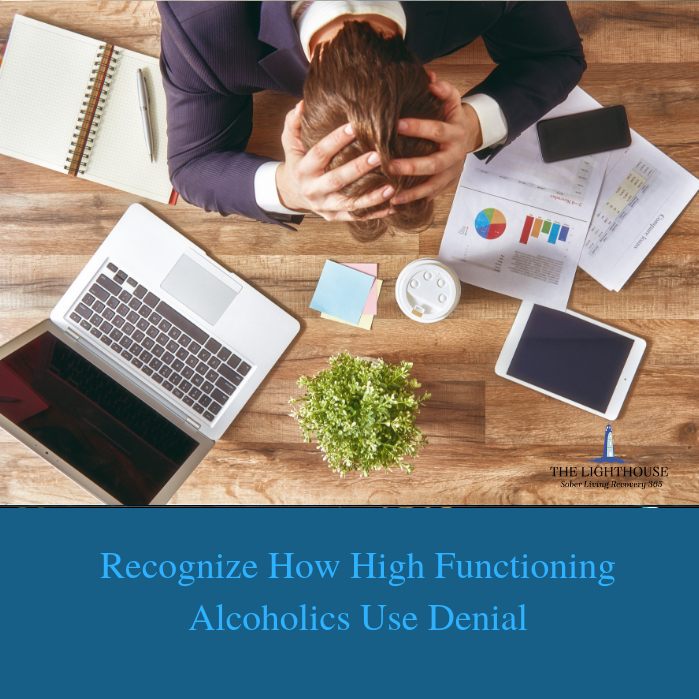Recognize How High Functioning Alcoholics Use Denial
Do you deny or excuse your excessive drinking?
Denial is when you refuse to accept a harsh reality as truth.
Denial in Action
It’s Friday night and your weekend begins. You’re over at your colleagues home having dinner. After the meal is over you both retreat to the great room, clear the table, you are already on your third drink when the cocaine comes out, and the party begins.
Your host is making your fourth or fifth drink, and you sit back and let the buzzing in your head clear away the stress from the week.
Some of your other colleagues and your wife feel you’ve been drinking too much and they don’t even know how to approach you using cocaine. You explain away the behavior as fun and relaxing. You do a line, but you cannot enjoy the buzz because the last argument about your drinking is echoing in your head.
You are not sure you believe this excuse anymore, but you are not missing work, your managing your start-up, and crushing your financial goals. So, honestly, how can partying your weekends away be harming you. In the beginning, your drinking was enjoyable; now it is just another habit you picked up along to success.
You tell yourself you’re not a “junkie” on the corner of Broadway and Wall Street begging for money so you can get your next bag of heroin. Unfortunately some mornings you feel just as bad as the guy begging for money looks.
You take a big gulp that finishes your drink and head over to the bar to mix another one.
You try to unwind, but you find it harder and harder to relax. Eventually, you make it home and pass out. Around 8 Am Saturday morning, you are on the golf course with another group of friends. Once again you are excusing your appearance and dreadful golfing, but your friends don’t accept the excuses. Instead, they lighten the situation and joke or jest about your drinking.
One friend makes a comment about your appearance and the company you choose to keep on the weekends.
You’re growing tired of your loved ones and friends haranguing you about your drinking and drugging. But you feel the facade is starting to crumble before your eyes.
You’re not just partying on weekends anymore. You find yourself having a drink or 5 to get over the hump on Wednesday, taking a bump or two each morning before you go into the office to be sharp and on your toes.
The alcohol and drugs are not working as it used too. It takes more to get the same effect, but your still high functioning and producing results, so you keep pushing forward and now convince yourself that everything is just fine.
When you take a look inside you, question if the alcohol is helping you to recharge your mental capacities? Or if your excuses are just aiming to cover up the fact you have to drink.
Your job is stressful. You have a responsibility to your employees and clients alike. At times, the workday demands all your energy and time. You feel mentally, physically, and emotionally spent. You explain away your drinking with a simple explanation of work requiring all of your time and energy. What is the harm in sitting quietly alone after work, having a few drinks to unwind and escape?
Denial in high functioning professionals
At first, denial in high functioning professionals isn’t recognizable. You are able to explain away your alcohol or drug abuse to your family, loved ones, colleagues, and yourself. As you continue to abuse alcohol, the different types of denial become more natural to recognize and more destructive.
Here is a list of common types of denial incorporated by high functioning professionals with alcohol/substance use disorders:
1 – Minimizing:
Do you compare your drinking to others? You see yourself differently because you are still able to complete all the tasks required of you. You make your problem with alcohol appear smaller than another’s. You minimize your problem with your ability to still function at high levels of accuracy, focus, and skill.
You downplay your problems with drinking by comparing it to less abstract issues relating to your life. Of course, you might admit that once in a while you get carried away, but you assure others that you quickly get your drinking back in control.
When your drinking is confronted you minimize the problem stating: Alcohol is not the problem. The real problem is… [insert challenge or problem]
2 – Rationalizing:
Alcohol isn’t your problem. The real issues and culprits are long work days confrontations with the board, rush hour traffic or anxiety and stress related to success and family.
As a high functioning executive, you understand how alcoholism begins to take hold and devastates a person physically and physiologically. You fail to see how your abuse of alcohol is culpable in creating the new challenges in your life.
Your’ rationalizing when you hear yourself say: My job is demanding and stressful, believe alcohol is the least of my problems.
3 – Blaming
At some point, your drinking becomes a daily occurrence, but you justify each day’s intoxication on forces beyond your control. You seek a scapegoat to take responsibility for why you are drinking more and for more extended periods of time.
The problem is becoming more apparent, but it is never your fault. You find outside forces, other persons, and challenges at work to blame for your drinking and drugging. When you use blaming as a form of denial you are giving yourself permission to continue the behavior.
Do you hear yourself saying: How can I say no to [insert high-profile client’s name here] when he wants to meet for drinks and discuss business?
4 – Comparing
High functioning individuals view their world differently than others. This is also true of their problems, especially when it comes to drinking. It is easy to downplay your drinking when you compare it to the stereotype of an alcoholic on skid row. You don’t always go to the extreme, but you do find yourself comparing the amount you drink or drug to other high functioning professionals who have disclosed their substance use disorder.
You hear yourself saying: I’m not drinking booze on the street out of brown paper bags like the drunks on the Bowery.
5 – Avoidance
Using avoidance as a form of denial is when you refuse to discuss your drinking. When confronted about the amount or frequency of use you change the subject. You feel if you don’t talk about the problem then it can not be true.
You might now that your problem with alcohol is growing out of control, but you feel it is a personal issue which doesn’t need to be discussed with other persons. You avoid talking about the amount you drink at all costs.
High functioning individuals are able to view conversations and confrontations with many angles. Using avoidance as a coping strategy comes quickly to you.
You hear yourself saying: Yes, that could be a problem but it’s not important right now because this [insert crisis] requires our immediate attention.
6 – Compliance
This type of denial is used when you no longer can deny that you have problems with your drinking. You have driven home one too many times intoxicated, been arrested for DUI, or have lost the ability to care to hide your alcohol.
Instead of fighting your family and friends about your drinking you comply with the requests presented to you. Deep inside you have no intention of following through on your agreements. You are tired of fighting them, so you accept responsibility for the sake of ending the intervention or confrontation. When asked about the progress you’ve made regarding taking control of your drinking you present a new excuse as to why you can not follow through with the request. You always assure others that you are doing everything in your power to get the situation under control.
You say: Okay, fine. I’ll find a [detox, inpatient treatment, outpatient, sober living home] to help get my drinking under control.
7 – Manipulating
Manipulation comes easy for high functioning individuals. Of course, it’s not a skill set you’d use on a resume or your LinkedIn profile, but you’ve learned to manipulate numbers, people and situations.
In regards to your drinking, you are willing to admit you have a problem but you cannot possibly tackle it without assistance. When confronted by others you employ these same individuals to help fix the problem. You could go as far as getting them to do all the work involved with getting sober. You find time to be alone with your drinking while your loved ones find ways to ease you into recovery.
Each day starts with a drink, and it alarms you, you cannot go a day without a drink, so you want a quick, effortless fix. You accept that there is a problem, but you cannot fix it on your own. When others cannot deliver a solution, you chastise them for the failure. You use guilt and shame as a weapon by manipulating them to believe you’re failing to be sober up is their fault and not yours.
You hear yourself saying: If you agree to help me solve my problem with drinking I’ll try to stop.
8 – Absolute Denial
You use this type of denial when you are firm in your decision to deny your addiction. You will not accept the fact when others tell you they are worried about your drinking. You quickly and wholeheartedly believe that you don’t have a problem with alcohol or drugs. High functioning professionals are good at persuading others into their line of thinking.
You have become so good at convincing others that there isn’t a problem that you start to believe this yourself. You think: If I have a problem with my drinking why am I so successful at my job?
When you’re confronted about your alcohol consumption, you hear yourself saying: No. Absolutely not, my drinking is not a problem.
How is denial protecting your drinking?
Has drinking become dangerous to your livelihood?
What triggers you to crave a drink?
Take a moment and think about your drinking
-
How you have recently explained or excused it by denying the existence of a problem.
-
Have you just started using denial to harbor your relationship with alcohol or illicit substances?
-
Are you drinking more frequently and making more excuses or joking about your behavior?
-
Is your drinking starting to affect the outcomes of your work, your relationships with family and friends?
It doesn’t matter if a problem is starting or if you feel you have already exhausted, recycled, and excused your addiction for years with these different types of denial. You can always change the behavior. You are not destined to a life of chaos and devastation caused by addiction.
The Lighthouse, a sober living home designed to help high functioning professionals and executives ease onto the path of recovery is available to help you. The staff and residents alike understand the stress of executive life combined with dangerous amounts of alcohol and illicit drugs.
Head over to Facebook or Linkedin and tell us you managed to break free of denial and get the help you desperately needed to enjoy life and a high functioning recovery.



